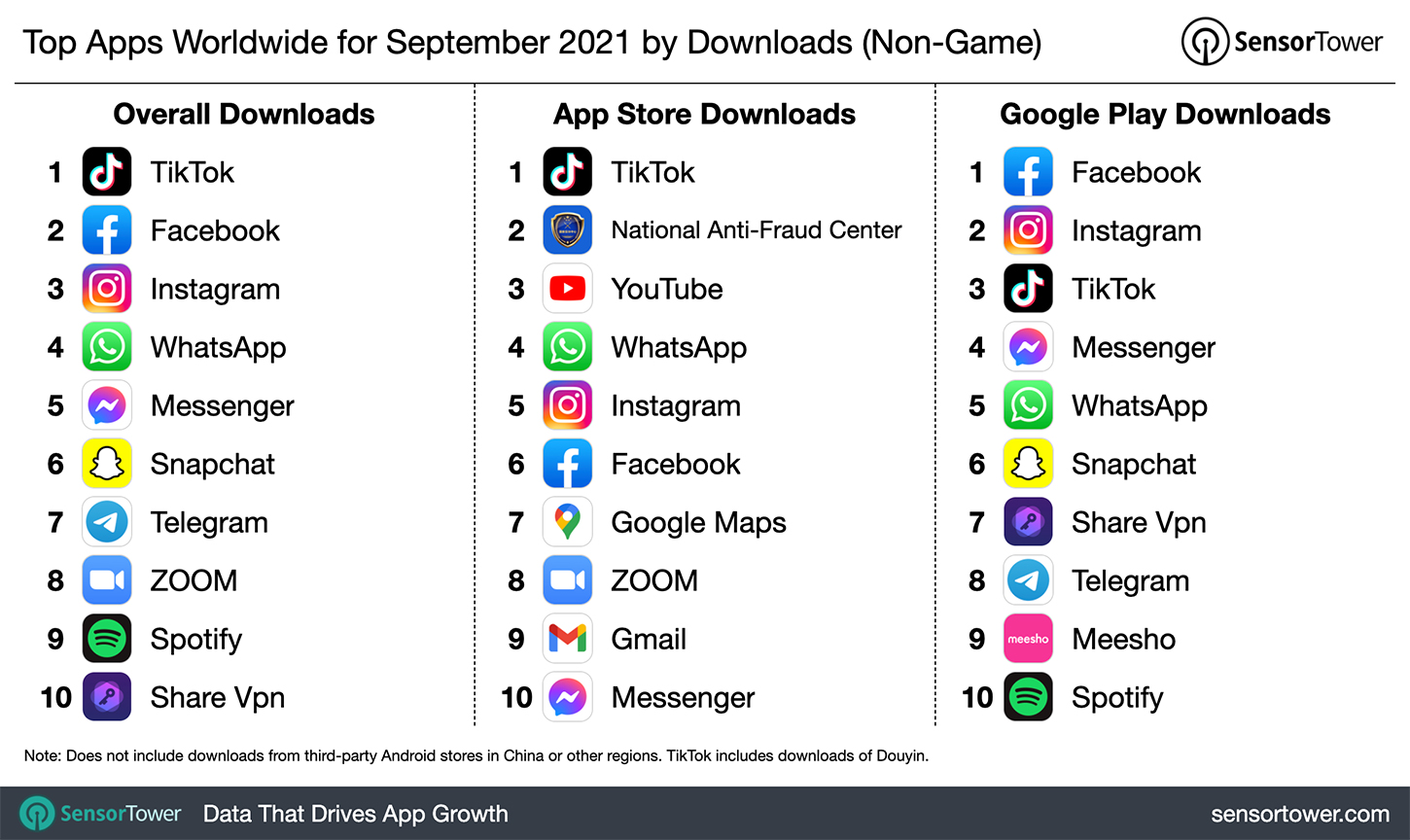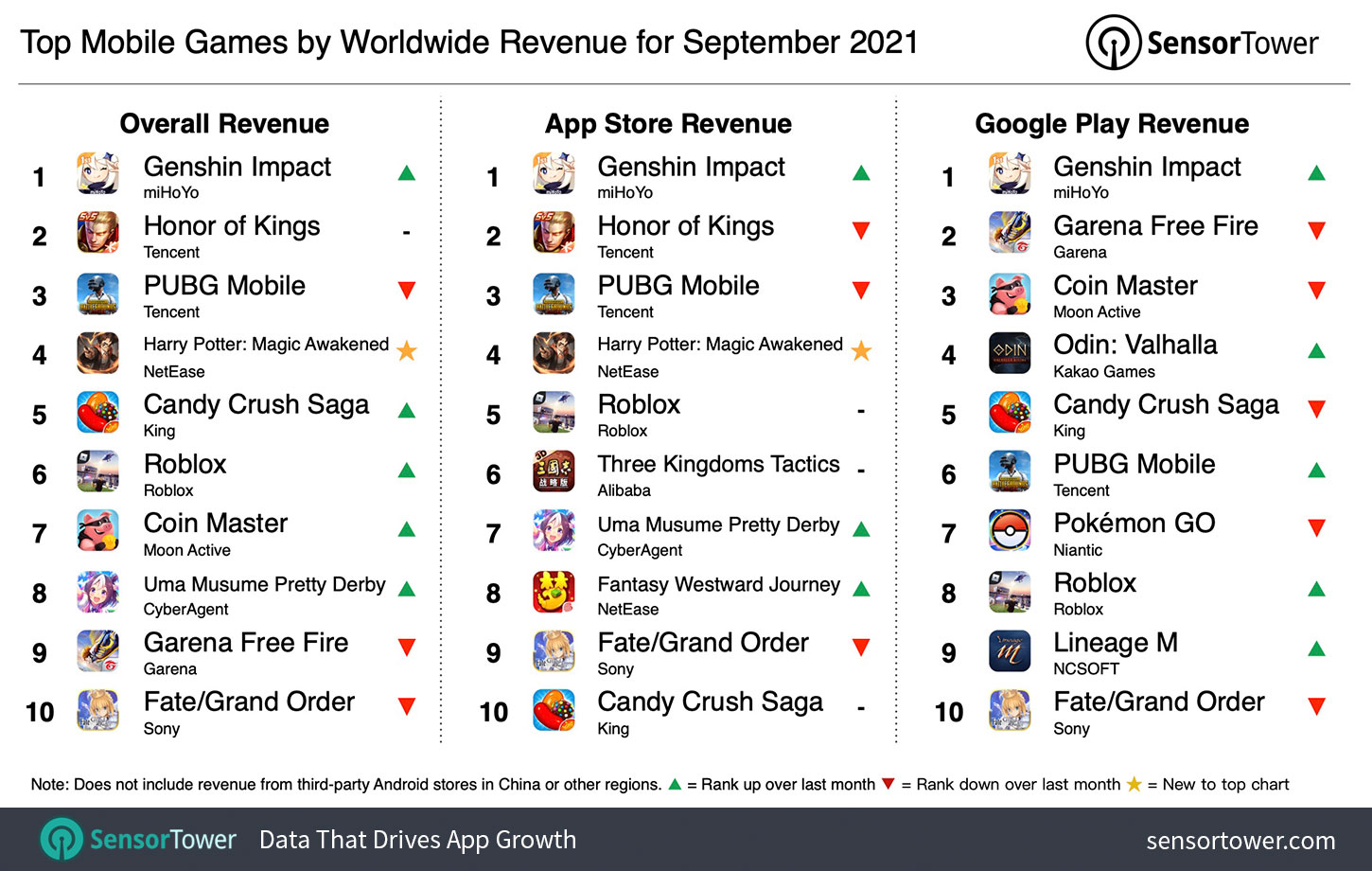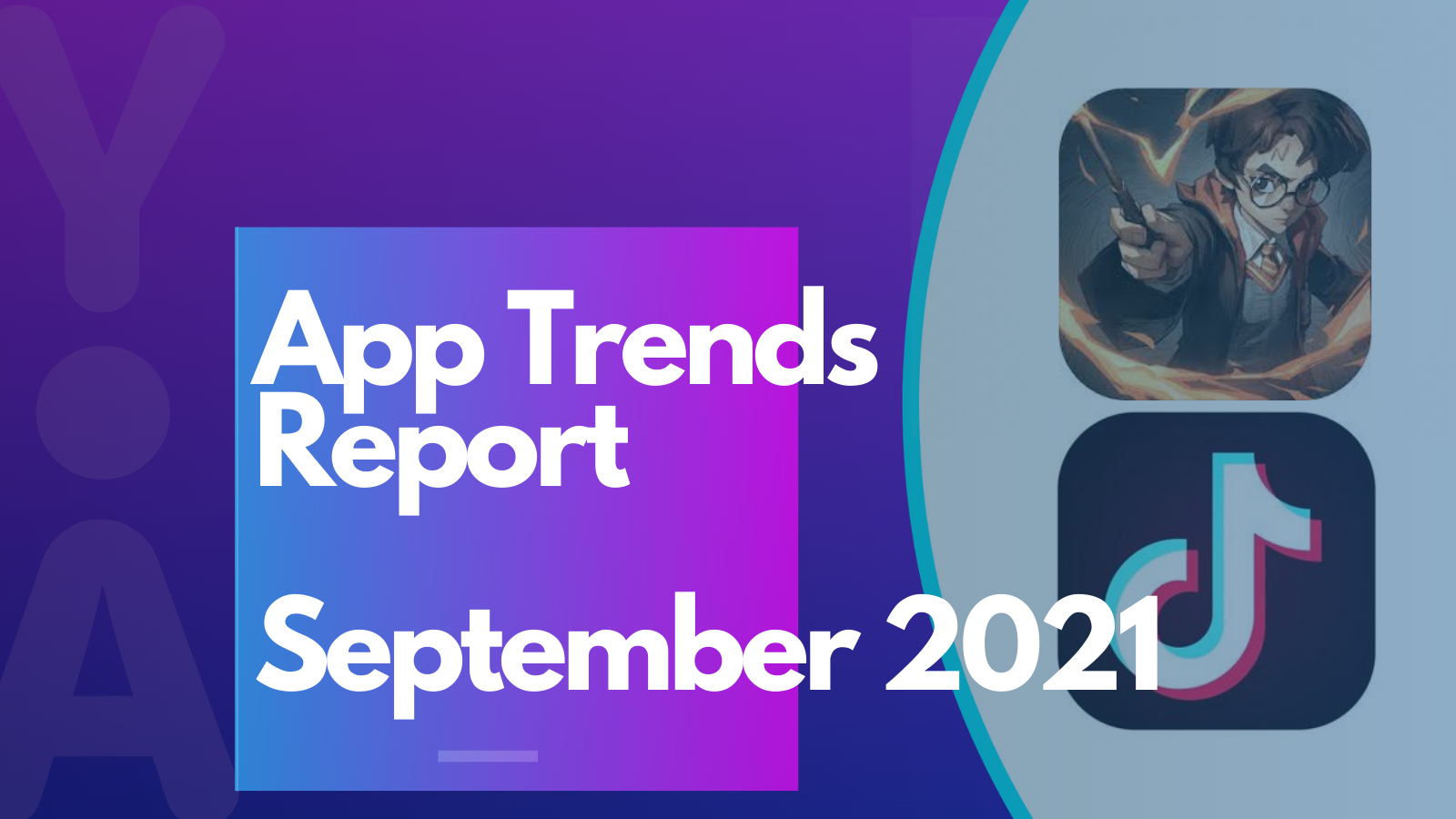Welcome to another installment of our Pulse on Current App Trends report. Each month we round up the most important mobile happenings and growth data from the previous month to help you better grow your app. This month we’re doing a special gaming deep dive in light of the mobile gaming M&A frenzy. We’re also reviewing September 2021 trends and giving you the scoop on the Epic vs. Apple ruling.
M&A Transforms the Mobile Gaming Industry
Mergers and acquisitions by companies in the gaming space have reached an all-time high, dwarfing M&A annual totals over the past five years. Much of this M&A fervor has occurred in the mobile gaming arena.
The pickup of M&A activity comes as gaming companies experienced record usage over the course of the pandemic. Better termed the ‘playdemic’, more users spent more time playing games in the face of shelter-in-place restrictions than ever before.
Gaming companies involved in the recent M&A spree include Codemasters, Zenimax, Next Level Games, Gearbox, Aspyr Media, New World Interactive, 4A Games, Daybreak, High Voltage Software, and Glu Mobile — to name a few.
This M&A frenzy comes after an already record-breaking year of gaming consolidation. Investments in the Gaming industry soared to $13.2 billion in 2020, a 77% increase from 2019. In terms of M&A deals, gaming clocked 220, marking a 33% year-over-year increase. For comparison, in the first quarter of 2021 alone, there were 280 deals closed, reaching an estimated $39 billion value.
What’s Driving the Gaming Consolidation Trend?
The massive rise of people and time spent in gaming apps during the pandemic is the top factor driving the M&A frenzy. During shelter-in-place restrictions, gaming became the leading segment in the entertainment sector, ahead of music, sports and movies combined. This contributed to a rise in earnings, which game companies are now putting to good use by selling high as gaming continues to show itself to be a high return market segment to investors.
In addition to the mobile gaming gold rush, data privacy changes like Apple’s IDFA deprecation have shown the benefits of consolidation. With user level data granularity more challenging to come by, bigger studios are snapping up smaller studios to expand their first party data.
The continued existence of other types of device IDs like the IDFV have also made amassing a large portfolio of game titles more attractive. Using the IDFV, mega studios can execute precise cross-promotional ad campaigns if a user opts-in to tracking for one of the games in their portfolio.
What This Means for Mobile Game Apps
From a mobile game app perspective, the consolidation frenzy could lead to greater stability and resources. Studios with bigger portfolios of apps could also launch subscription payment models and raise their prices. These benefits would also trickle down to the user, with bigger studios able to track faster, more regular game updates than independent studios could have executed on their own.
On the downside, greater consolidation could also sap creativity. A mobile gaming industry with a healthy amount of independent studios means a competitive environment that inspires creative risk-taking. For the user, the loss of this type of market environment could trickle down as creative stagnation, fewer choices, and higher subscription prices.
Epic Insight: What We Learned from the Epic vs. Apple Ruling
Early in September, the bitter battle royale between Epic Games and Apple over in-app payments finally came to a close. A US federal judge ruled that starting in December, Apple can no longer mandate app developers use its payment system, allowing developers to set up direct, alternative payment systems for purchases in their app that sidestep Apple’s fees.
This outcome aside, the most epic insight from the case was the revelation that Apple’s App Store revenue is generated almost entirely by users who play mobile games and make in-app purchases. According to the ruling, game apps account for 70% of all App Store revenue. That 70% is generated by less than 10% of all App Store users. By contrast, more than 80% of all accounts generate virtually no revenue, as 80% of all apps on the App Store are free. Of course, apps don’t just dominate on iOS. Eighty-one percent of the top 200 most profitable Android apps are games. Basically, the takeaway is the App Store is a mobile game store and the Google Play store is very aptly named.
For mobile game apps, the Epic vs. Apple ruling freed up millions of dollars in revenue that was previously locked up in Apple’s in-app payment fees. This means more revenue mobile game marketers can use to grow their apps and retain their users.
Top Apps in September 2021
Most Downloaded Non-Gaming Apps
No surprises here — TikTok continues to be the most downloaded non-game app worldwide. In September 2021, the video sharing app drove 59 million downloads. The countries with the largest number of installs were China at 16%, and the US at 12%.
Facebook was the second most installed non-gaming app worldwide last month with more than 51 million installs. Leading growth was India at 29% of installs and Indonesia at 7% of installs.
Facebook-owned Instagram, WhatsApp, and Messenger rounded out the top five most installed non-gaming apps worldwide for the month.

Source: Sensor Tower
Highest-Grossing Gaming Apps
Genshin Impact from miHoYo was the highest-grossing mobile game worldwide in September, generating $341.7 million in player spending. The countries driving the highest revenue were China at 31.6% of revenue, the US at 21.7% and Japan at 21%.
Honor of Kings from Tencent was the second highest-grossing game, generating $209 million in gross revenue. About 95% of that was driven by China followed by 2% from Taiwan.
PUBG Mobile from Tencent, Harry Potter: Magic Awakened from NetEase and Candy Crush Saga from King rounded out the top five highest-grossing mobile game apps in September.

Source: Sensor Tower
Overall, the global mobile games market generated $7.3 billion in player spending across the App Store and Google Play in September. This marked an 11% increase year-over-year.
The top market globally for gaming revenue this month was the US, which accumulated approximately $2 billion, or about 28% of total player spend worldwide. Japan was the second highest-generating market for mobile games driving 20.5% of global revenue. The Chinese market took third place at approximately 18%.
Honorable Mention: Harry Potter: Magic Awakened
Launched in China on September 9, 2021, Harry Potter: Magic Awakened was one of the world’s largest mobile game launches this year. The app has already generated $138.2 million in player spending in just its first month. This performance is impressive given the fact the title is only available in select countries. These countries include China, which has driven a majority 94% of Harry Potter’s revenue. Following China is Taiwan which has driven a much smaller 3.6% of revenue.
The game is the most successful launch of a title using the Harry Potter license, outpacing Harry Potter: Wizards Unite from Niantic and Harry Potter: Hogwarts Mystery from Jam City. For comparison, Harry Potter: Hogwarts Mystery generated $300 million in revenue over the course of three years.
Harry Potter: Magic Awakened was the most downloaded mobile game in China in September. It also took the #1 spot for top grossing games in the Chinese Apple App store.
Following its success in China, the game is now expected to roll out to other emerging markets in southeast Asia in Q4, including Japan and South Korea. There's still no word of when the title will be released in Europe or North America.
The success of Harry Potter: Magic Awakened shows an app does not need to launch in historically-dominating mobile markets like the US to be successful.
Takeaways
In this installment of our Pulse on Current App Trends report, we gave a mobile gaming deep dive, covering the ongoing M&A trend and Epic vs. Apple’s impact on marketers.
- M&A by companies in the gaming space have reached an all-time high, dwarfing M&A annual totals over the past five years.
- For mobile game marketers, the consolidation means greater stability and resources but also a potential slowdown in creative risk-taking.
- The Epic vs. Apple ruling revealed that the App Store is actually a games store and generates 70% of its revenue from mobile games.
- With less money wrapped up in App Store fees as decided by the court ruling, mobile game marketers now have even more money available to invest in UA and retargeting efforts.
- TikTok was the top non-gaming app in global downloads overall in September 2021. Genshin Impact was the top game app in global revenue.
- Harry Potter: Magic Awakened launched in select countries in September and is already outpacing previous Harry Potter-licensed titles even though it hasn’t even rolled out to Europe or North America yet. This shows that an app does not need to launch in historically-dominating mobile markets like the US to be successful.

